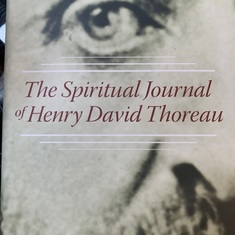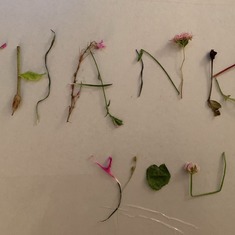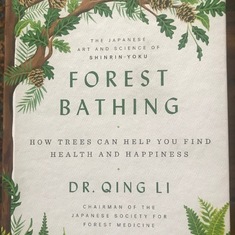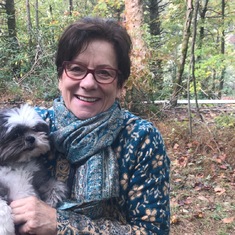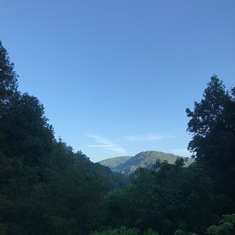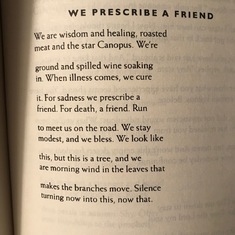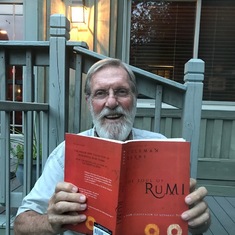K = Katherine Townsend
Dr. E.= John T. Edwards, PhD
K: Dr. Edwards, you are involved in treating substance abuse problems on a family level. What advantage does this type of treatment have over the more traditional methods, like group or individual therapy?
Dr. E: The major advantage I have found, and I've done all three over the past five years, is that family therapy takes on more importance to the drug dependent individual. That is, his motivation level is higher. The important people around him, many of whom control some of the resources the drug dependent person needs are there, and are reacting to the identified patient in ways that sometimes help maintain the problem. So, breaking into the enabling pattern is very important.
K: To what extend are families involved in what seem to be individual problems such as drinking too much or drug abuse?
Dr. E: A recent Gallop poll conducted through out the U.S., that came out about 6 weeks ago, inndicated that one out of three families have a problem with substance abuse. That's quite a high statistic and it was one that surprised many people.
K: What evidence do you have that family treatment is more effective than individual or group treatment?
Dr. E: There is evidence from research conducted in various places, but notibly in Philadelphia by M.D. Stanton, that bringing in the family in drug dependent problems leads to a more successful outcome. That is if you measure outcome by the two main criteria of amount of time without drugs and no criminal activity. My own experience and some of the readings I've done indicate that there is more success when you bring in the families of the drug dependent person.
K: You mostly work in the Structural/Strategic models of family therapy. What are the assumptions of this model and how does it differ from other family therapy methods?
Dr. E: Structureal Family Therapy and Strategic Family Therapy are not the same. They do have different ways of approaching the problems. The Structural model and Strategic model do share however, some common assumptions. One of these is that a long standing chronic symptom of most any type, including drug abuse, is being maintained in its social context. That's a very important assumption for doing therapy. The primary social context for most people is the family.
Another assumption that is made about this model is that in a drug dependent family, the recurring patterns of relating to each other have in some way violated certain principles of hierarchy and boundries. By that I mean the power structure in the family have been distorted or reversed, like a child may have more power than the parents. Boundries may be unclear, like an overinvolved mother with a son. Some of these patterns sometimes result in symptoms like drug abuse.
A third assumption is that changing these family patterns or structure will change the experiences of each member, and remove the need for the symptom, thus allowing a new growth process to begin in the family.
K: In the model you use, what would one be trying to accomplish by seeing, for example, a drug abusing young person with his/her family?
Dr. E: By young person I am going to assume we're talking between the ages of 13 and 25. In the majority of the cases that I have supervised or worked with in this age range have a problem with beginning and maintaining their own independence. That is, it is a separation issue. They are overly involved with their nuclear family (mother, dad and siblings) or they have unsuccessfully tried to leave homme and are unable to be self sufficient. Therefore, seeing the entire family helps to reorganize them to motivate the young person to allow for the separation to occur successfully.
K: How long would one work with a particular family? How many sessons are involved?
Dr. E: I like to see a family between 8 and 15 sessions. However, the average is less than that with this population. I believe that some long standing and enduring structural change can occur within the 8 to 15 session range for at least 80% of the families.
K: Does family therapy take more time?
Dr. E: In terms of total treatment hours it probably takes less time. Things happen faster in family therapy; therefore, fewer sessions are needed.
K: Is it best to use co-therapists with families or a single therapist?
Dr. E: I like to work with a special kind of co-therapy model. That is, only one therapist in the room with a family. However, I strongly believe in having the support of a supervisor or colleagues, who, if the equipment is available, can be observing the session behaind the mirror, with the family's permission. So, it's a special type of co-therapy model. Only one therapist is in the room at a time.
K: If this model does not advocate co-therapists in the room, are you saying that one therapist could do this without any support from anyone else?
Dr. E: Even thhough there is only one therapist in the room at a time, I believe no one should attenpt to do family therapy entiirely alone. There should be colleagues or others involved in the work that the therapist can talk to and invite to observe sessions to give feedback.
K: Many families are extremely resistant to discussing drug problems with a therapist. How do you get these families to come in?
Dr. E: If you have administrative support, you can make it a general policy that all people below a certain age would have to have their familiies in for at least an assessment interview. However, if you are not working with young people in a family, you're working with young adults who are not in the nuclear family, then you have to see them on an individual basis and begin discussing family relationships. Gradually, over one or two sessions, the therapist is able to build a sound rationale for including the family. It would be important, however, that the therapist contact the family and not go through the identified patient (IP) to get the family in. The therapist needs to get permission from the IP and contact the family directly. Everyone living in the home should attend the first family session.
K: How much training does it take to do family therapy?
Dr. E: The American Association of Marriage and Family Therapy (AAMFT) has set the standard of 200 hours of training plus 1000 hours of actual experience with a family to be certified as a clinical member in their organization. I believe, however, that competent family work can begin (with support of colleagues) with less training than that, perhaps in the 60 to 80 hour range, not all of which would be in room with the family wiith supervision, but most of which would.
K: How would an individual or an agency that wanted to learn family therapy begin?
Dr. E: By attending one or more workshops. I have noticed, particularly in the past year and a half, that there has been a fairly dramatic increase in the amount of training workshops in family therapy. There are perhaps six major schools of family therapy. Structural is one, and Strategic is a second. But the four others are also widespread. I would recommend that a beginning therapiist choose a workshop, find if that model suits their particular style, and if so, inquire from the workshop leader where further training can be obtained.
K: What are some of the training resources in the nearby area?
Dr. E: I'm not familiar with all the ongoing supervision type training of this model in North Carolina. In know that the Randolph Clinic and Open House are collaborating in Charlotte to provide this training, and I know that some is provided by the Family Therapy Learning Center in Raleigh. I'm not familiar with others who are available as trainers, but I believe they do exist in the state. The therapist would just have to ask around in order tto find out about this.
K: Does it take any special equipment or facilities to do family therapy?
Dr. E: It's highly advantageous, almost necessity, to have some way that the single therapist working wiith a family can be observed by a supervisor or colleague. The easiest way this is accomplished is through the one way mirror with microphone and videotape. The family, of course, gives permission in writing for this observation to occur. If the one way miirror is not available, and neither is videotape, then I would suggest that the colleagues work together in the room. However, only one therapiist would deal with the family, the other would sit nearby but stay out of the action. That would allow processing to occur between the colleagues after the session.
K: Would you mind people who are interested in further information about family therapy contacting you directly?
Dr. E: No, I would be delighted. I like to talk with anyone about family therapy training. I would like to see it become a more common therapeutic approach in this state. I can be called at (704) 376-2431, which is the Randolph clinic where I am employed as a consultant and trainer.
K: For a therapist beginning family work, what readings would you recommend?
Dr. E: I would recommed for this particular approach, any books by Salvadore Minuchin or Jay Haley. Minuchin has written or co-authored three books. The latest of which is entitled Family Therapy Techniques which I believe is an excellent book. Jay Haley has written seven books, perhaps the best of which for the beginner is Problem Solving Therapy, published in 1976. However, there are many excellent books on the market these days and they seem to be increasing in number. I understand there will be a bibliography of family therapy books in this issue of the ADAP-ter.
K: Yes there is, it's on page 9, and thank you for this interview Dr. Edwards.
This interview was conducted in early 1983 by Katherine Townsend who collaborated with Lewis Foster to produce a Western Region newsletter for professionals working with chemically dependent clients.



